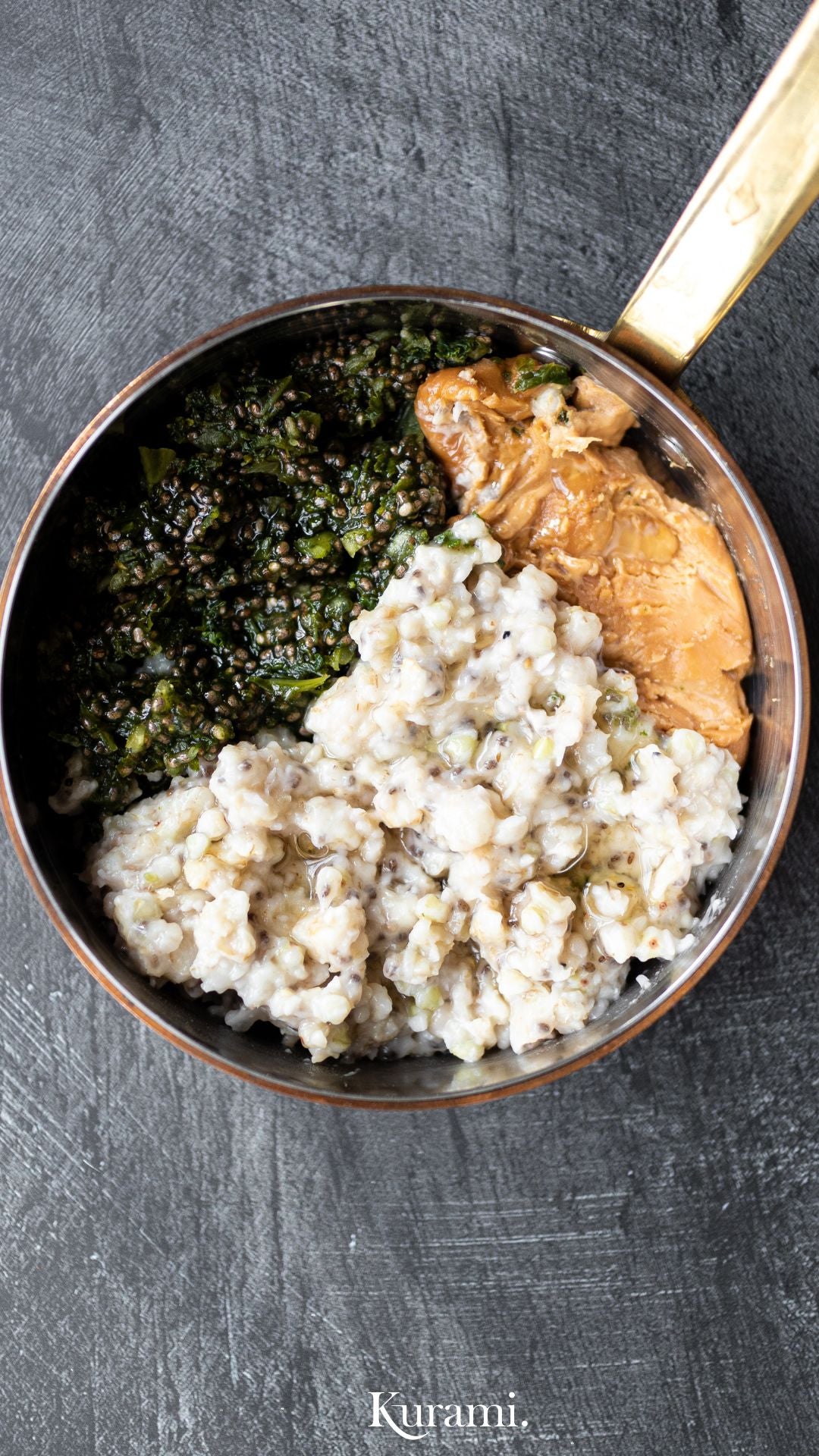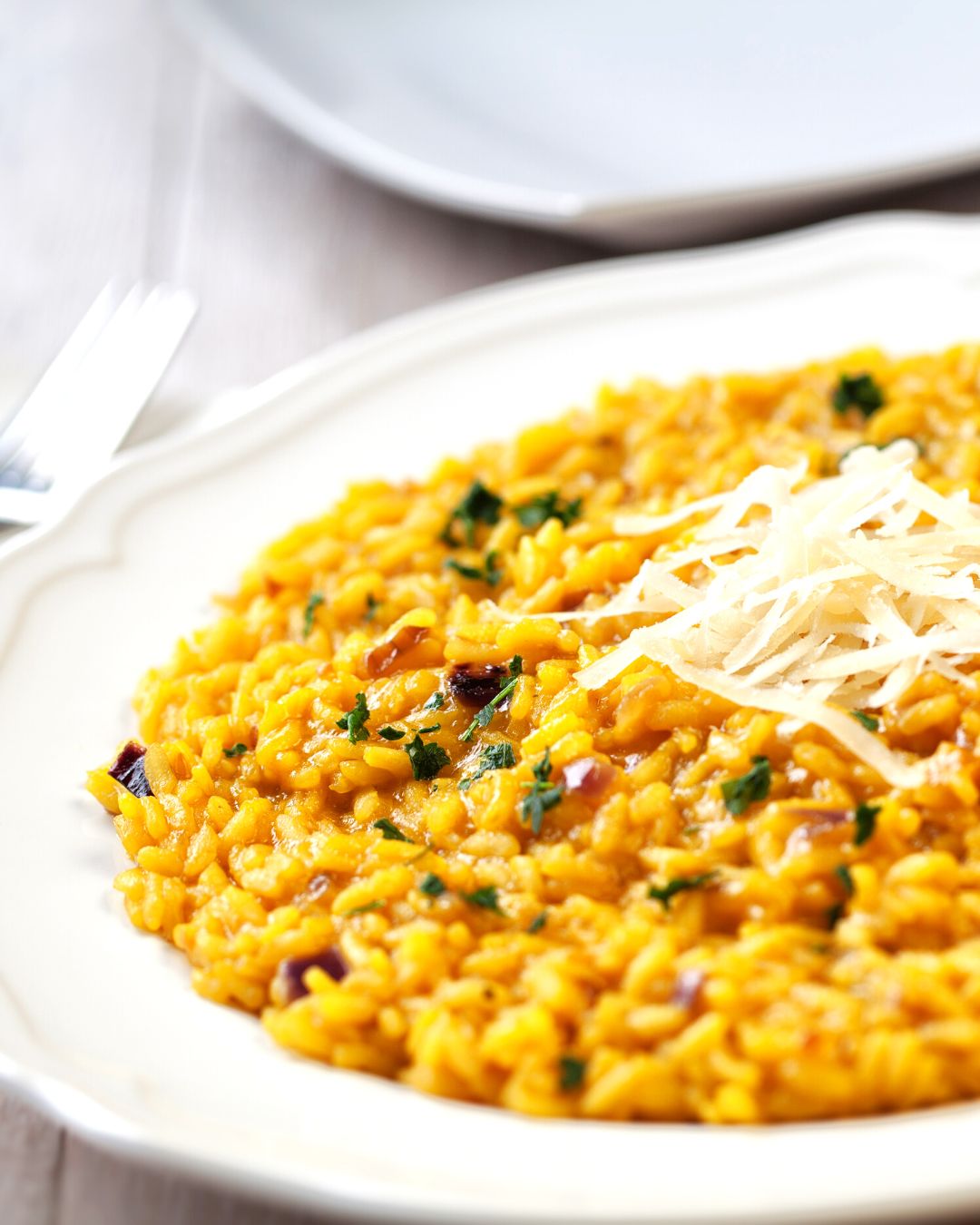
The science behind what we do
You might have heard us say ‘we combine science with flavour’, but what do we actually mean by this? There is a reason at Kurami we put so much thought behind each meal component and the nutrition involved, so let us tell you why and just how important it is.
Fresh produce & no preservatives
We know that artificial additives, preservatives & emulsifiers negatively affect the gut microbiome. When consumed on a regular basis, inflammatory and tissue-damaging responses are promoted, which over time can result in good and bad gut bacteria dysbiosis and develop into inflammatory gut conditions.
We carefully select our suppliers, opting for organic whenever possible. Whole food ingredients are essential in order to be able to achieve the result we strive for - fresh, delicious, nutritious & diverse meals. We carefully read the labels and analyse the nutritional aspect of each product to make sure there are no preservatives, artificial sweeteners or flavourings, emulsifiers and other things we prefer not to end up on your plate.
Low salt
We use low-sodium salt which has 50% less sodium than regular salt. By doing this, we hope to help you reduce your sodium intake, which when exaggerated, can contribute to clogged blood vessels and heart disease.
Slow releasing carbs
Carbs are responsible for providing energy, as well as storing it for later as glycogen. Picture the muscles and the liver like a spare fuel tank. If one runs empty by not eating enough, waiting too long in between meals, exercising intensively – more energy is made from glycogen by turning it into glucose.
Simple carbs (such as crisps, baked goods, white bread, white pasta etc) are converted into energy quickly, which does not last for long. So, to stay energised throughout the day and avoid blood sugar spikes, complex carbs are more beneficial. Focus on whole grains, pulses, fruit and starchy veg instead.
Also, the brain is powered by carbs, so even if it seems like one sitting on their laptop all day working, those carbs are being burned! This is because the brain is estimated to use 60-70% of the body’s glucose (~120g) in a resting state, when one is not doing absolutely anything. This explains the headaches, dizziness, fatigue and weakness experienced on low-carb diets.
Gluten & dairy free ingredients
Our Founder herself understood the many problems some of us have with symptoms caused by gluten and dairy. Kurami was curated to serve everyone who strives to be their healthiest self, while eliminating the pain, inconvenience & frustrations of having to think not only what to eat, but also, what can you eat that will leave you energised and glowing, instead of being riddled with unpleasant symptoms.
Our philosophy encourages thinking of how you can enrich your diet, rather than thinking of the next food to cut out. So keep in mind that dairy, especially probiotic products like yoghurt and certain cheese, as well as gluten, are not inherently bad if you can tolerate lactose, digest gluten and do not suffer from inflammatory conditions.
And lastly, why 100+ plants weekly?
The average fibre intake in the UK is ~18 grams per day, while the recommended intake is 30 grams per day, meaning that people consume just slightly over half of the recommended amount of fibre. Aiming to boost fibre in all Kurami dishes is at the forefront of menu development.
Research that studied the diversity of the gut microbiome in different people, concluded that those who included 30 or more types of plant foods each week, had significantly more diverse microbiomes in terms of all the good bacteria that were residing there. Exposing the gut bacteria to as many different plant-derived foods as possible allows the gut to benefit from a wide range of probiotics, prebiotics and polyphenols that foster a healthy gut environment and so positively influence overall health.
30 types of plant foods sound like a lot, but keep in mind that this includes vegetables, fruit, grains, pulses, nuts, seeds, herbs, and spices.Kurami strives to provide as much diversity as possible, hitting 100+ plant varieties in our latest menu plan!
Among the varieties, there is a wide range of gluten-free whole grains, such as amaranth, sorghum, buckwheat, quinoa, gluten-free oats and brown rice. Simply switching up the grains enables to increase diversity, flavours and textures, as well as expand the number of sources of various minerals and vitamins. Who said a gluten-free diet has to be boring and repetitive? We ensure this is not the case with Kurami!
You can count on us to stay up to date with all the latest science findings and implement it into our processes. Feeling like your gut could do with some TLC? Select your favourite new meal path service. .

